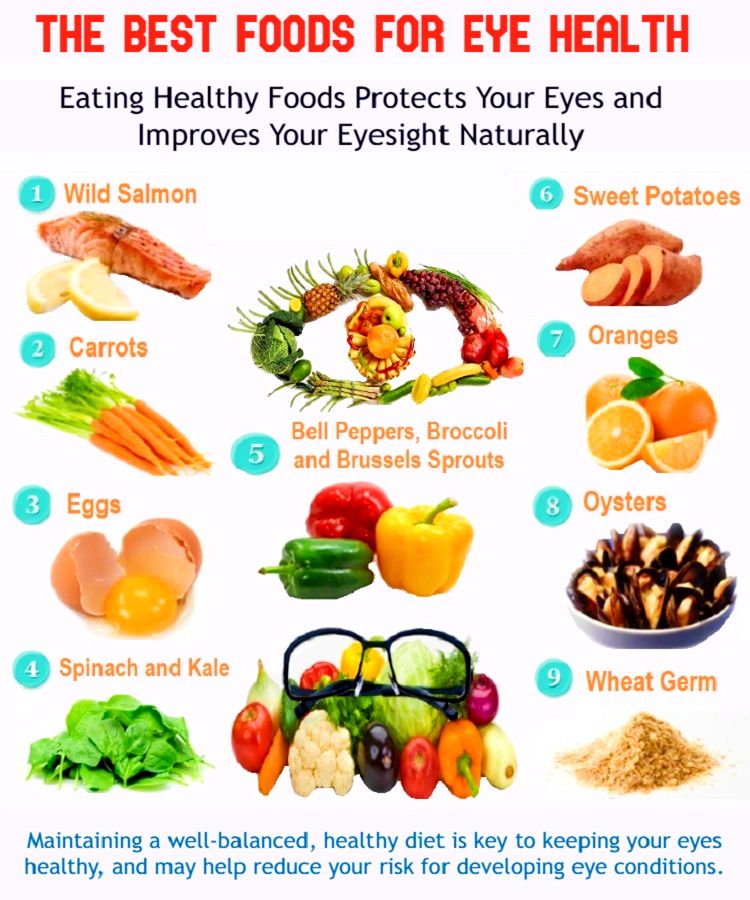Vision is one of the most precious senses, allowing individuals to perceive the world around them with clarity and richness. As such, maintaining optimal eye health is paramount. Nutrition plays an instrumental role in vision improvement and the prevention of age-related ocular diseases. This article aims to delineate the best foods that support vision enhancement, emphasizing the intricate relationship between diet and ocular wellness.
To delve into this topic, it is crucial to elucidate the key nutrients that bolster eye health and identify the foods that are abundant in these vital components. Furthermore, we will explore the physiological mechanisms by which these nutrients function to improve vision and mitigate the risk of ocular diseases.
Vitamin A: The Foundation of Eye Health
Vitamin A is an essential nutrient revered for its pivotal role in maintaining optimal vision. This fat-soluble vitamin is a precursor to rhodopsin, a photopigment found in the retina, which is critical for low-light and color vision. Insufficient intake of Vitamin A can lead to night blindness and other vision impairments.
Foods rich in Vitamin A primarily include:
– **Carrots:** These root vegetables are densely packed with beta-carotene, the plant-based precursor to Vitamin A. Consuming carrots can enhance night vision and overall ocular health due to their high antioxidant content.
– **Sweet Potatoes:** An excellent source of beta-carotene, sweet potatoes not only contribute to improved vision but also possess anti-inflammatory properties that promote overall eye health.
– **Dark Leafy Greens:** Spinach, kale, and collard greens are particularly rich in lutein and zeaxanthin, two carotenoids that filter harmful blue light and protect the retina. They also contribute to better contrast sensitivity.
– **Eggs:** The yolk contains both Vitamin A and lutein, making eggs an outstanding dietary inclusion for enhancing visual acuity and protecting against age-related macular degeneration (AMD).
Omega-3 Fatty Acids: The Essential Lipids for Eye Integrity
Omega-3 fatty acids are integral to maintaining the structural integrity of cell membranes, including those in the retina. These polyunsaturated fatty acids have been implicated in numerous studies featuring their protective effects against dry eye syndrome and AMD.
Sources of Omega-3 fatty acids include:
– **Fatty Fish:** Varieties such as salmon, mackerel, and sardines are exceptionally rich in EPA and DHA, types of Omega-3s linked to improved retinal health and reduced risk of ocular degeneration.
– **Chia Seeds and Flaxseeds:** These plant-based options serve as excellent sources of alpha-linolenic acid (ALA), a precursor to EPA and DHA. They are especially beneficial for individuals adhering to vegetarian or vegan diets.
– **Walnuts:** Known for their rich Omega-3 content, walnuts provide anti-inflammatory benefits which contribute to the prevention of dry eyes.
Antioxidants: The Protectors Against Ocular Stress
Oxidative stress is a significant contributor to the aging process and the development of chronic eye diseases. Antioxidants such as Vitamin C, Vitamin E, and the carotenoids lutein and zeaxanthin play a vital role in neutralizing free radicals, thereby protecting retinal cells.
The following foods are abundant in antioxidants:
– **Citrus Fruits:** Oranges, grapefruits, and lemons are rich sources of Vitamin C, and their consumption has been associated with a decreased risk of cataract development.
– **Berries:** Blueberries, strawberries, and blackberries boast high levels of antioxidants, particularly anthocyanins, which support vascular health and improve blood circulation to the eyes.
– **Nuts and Seeds:** Almonds and sunflower seeds are packed with Vitamin E and other antioxidants, contributing to the maintenance of retinal integrity and overall visual health.
– **Bell Peppers:** Vibrantly colored bell peppers are excellent sources of both Vitamin C and beta-carotene, enhancing their potential in vision improvement and ocular disease prevention.
Carotenoids: The Vision-Supporting Pigments
In addition to Vitamin A, other carotenoids such as lutein and zeaxanthin are crucial for eye health. These pigments accumulate in the macula, the part of the retina responsible for central vision, and are known for their ability to absorb harmful blue light.
Foods that are high in carotenoids include:
– **Kale and Spinach:** As previously mentioned, these dark leafy greens are among the best sources of lutein and zeaxanthin, contributing significantly to the reduction of the risk of AMD.
– **Corn:** A lesser-known source of lutein, corn can be easily incorporated into various dishes while providing ocular benefits.
– **Kiwifruit and Grapes:** These fruits exhibit high levels of lutein and also provide valuable Vitamin C, establishing a dual action to enhance eye health.
Whole Grains: The Unsung Heroes of Vision
Whole grains are often overlooked in discussions surrounding ocular nutrition. However, they provide essential nutrients such as Vitamin E, zinc, and various B vitamins, all of which support eye health and contribute to improved vision.
Appreciated examples include:
– **Quinoa and Brown Rice:** These grains offer a rich nutrient profile, providing energy while supporting overall health, including ocular health.
– **Oats:** In addition to their high fiber content, oats provide essential antioxidants that benefit vascular health, crucial for ensuring adequate blood flow to the eyes.
Hydration: The Often-Excluded Component
While not a food per se, proper hydration is integral to ocular health. Dehydration can lead to dry eyes and irritability. Water consumption helps to maintain optimal tear production and ensures that nutrients circulate effectively within the body.
Conclusion
In summary, the nexus between dietary intake and vision improvement cannot be overstated. A diet rich in fruits, vegetables, whole grains, healthy fats, and adequate hydration fosters a conducive environment for maintaining acute visual acuity and mitigating the risk of age-related ocular diseases. Making conscious decisions to incorporate these foods into one’s dietary regimen can substantially enhance eye health and quality of life. Therefore, fostering a holistic approach to nutrition is not only beneficial but imperative for sustaining optimal vision throughout the lifespan.
